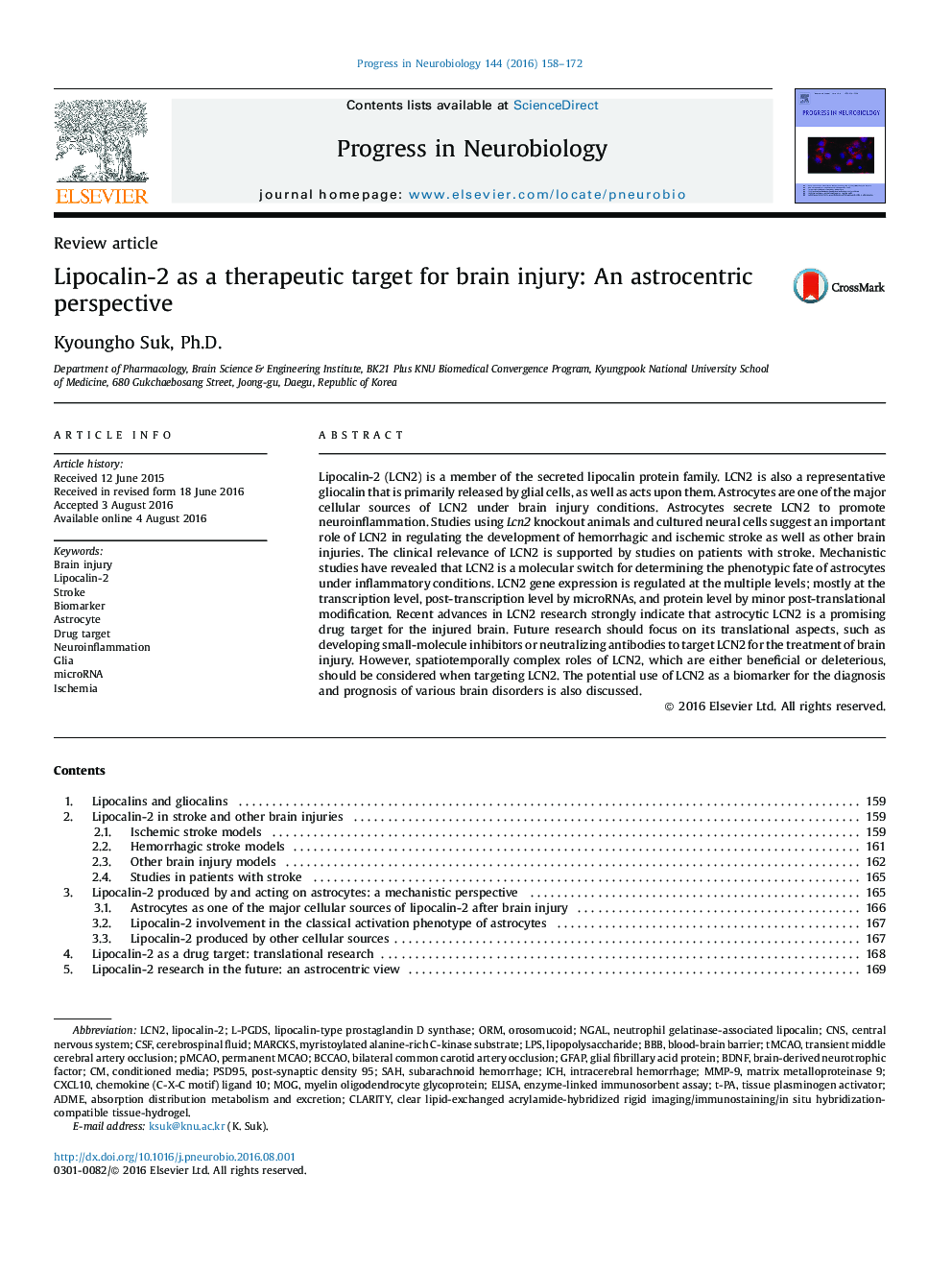| کد مقاله | کد نشریه | سال انتشار | مقاله انگلیسی | نسخه تمام متن |
|---|---|---|---|---|
| 4353216 | 1615369 | 2016 | 15 صفحه PDF | دانلود رایگان |
• Lipocalin-2 (LCN2) expression is highly upregulated in astrocytes under diverse brain injury conditions, and the induced astrocytic LCN2 orchestrates neuroinflammation.
• Studies using animal models and patients have revealed that astrocyte-secreted LCN2 plays a critical role in the development and progression of brain injury.
• LCN2 is a promising drug target, which should be pursued in forthcoming translational research, using an astrocentric perspective.
• LCN2 also has a diagnostic value. Aptamer-based detection methods are being developed to replace the conventional antibody-based ELISA for this purpose.
Lipocalin-2 (LCN2) is a member of the secreted lipocalin protein family. LCN2 is also a representative gliocalin that is primarily released by glial cells, as well as acts upon them. Astrocytes are one of the major cellular sources of LCN2 under brain injury conditions. Astrocytes secrete LCN2 to promote neuroinflammation. Studies using Lcn2 knockout animals and cultured neural cells suggest an important role of LCN2 in regulating the development of hemorrhagic and ischemic stroke as well as other brain injuries. The clinical relevance of LCN2 is supported by studies on patients with stroke. Mechanistic studies have revealed that LCN2 is a molecular switch for determining the phenotypic fate of astrocytes under inflammatory conditions. LCN2 gene expression is regulated at the multiple levels; mostly at the transcription level, post-transcription level by microRNAs, and protein level by minor post-translational modification. Recent advances in LCN2 research strongly indicate that astrocytic LCN2 is a promising drug target for the injured brain. Future research should focus on its translational aspects, such as developing small-molecule inhibitors or neutralizing antibodies to target LCN2 for the treatment of brain injury. However, spatiotemporally complex roles of LCN2, which are either beneficial or deleterious, should be considered when targeting LCN2. The potential use of LCN2 as a biomarker for the diagnosis and prognosis of various brain disorders is also discussed.
Figure optionsDownload high-quality image (146 K)Download as PowerPoint slide
Journal: Progress in Neurobiology - Volume 144, September 2016, Pages 158–172
